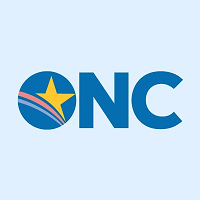 By Alex Mugge and Kyle Cobb, ONC
By Alex Mugge and Kyle Cobb, ONC
Twitter: @ONC_HealthIT
An interoperable U.S. healthcare system depends on collaboration across diverse groups inside and outside of government, working in a complex environment toward a common goal. The Office of the National Coordinator for Health IT (ONC) and the Centers for Medicare & Medicaid Services (CMS) play different but complementary roles to advance health data interoperability. ONC and CMS each lead regulatory and programmatic efforts to evolve the interoperability landscape, collaborating closely with each other and industry groups – payers, providers, developers, standards organizations, and patient advocates – along the way. Through the ONC Health IT Certification Program and several CMS regulatory policies, we work together to address key challenges and gaps to create a cohesive vision and roadmap for advancing interoperability.
The adoption of the Health Level Seven International (HL7®) Fast Healthcare Interoperability Resources (FHIR®) standard in the ONC Cures Act Final Rule and the required use of FHIR application programming interfaces (APIs) in the CMS Patient Access and Interoperability Final Rule are prime examples of the power of this type of collaboration.
Last April, CMS and ONC reflected on their partnership during a CMS-sponsored forum that featured National Coordinator Micky Tripathi. During this session, Micky and more than 100 CMS employees discussed areas where ONC and CMS efforts most readily intersect to advance interoperability. He highlighted the importance of the Trusted Exchange Framework and Common Agreement (TEFCA) in simplifying health data exchange, critical ONC Health IT Certification Program enhancements as part of the ONC Health Data, Technology, and Interoperability: Certification Program Updates, Algorithm Transparency, and Information Sharing (HTI-1) proposed rule, and ONC’s commitment to continued development of the FHIR standard. Micky also provided an overview of ONC’s support of CMS’s efforts towards improving data exchange and efficiencies, with Data at the Point of Care, Beneficiary Claims Data, and Blue Button 2.0 FHIR APIs as noteworthy examples.
Looking ahead, ONC and CMS are focused on initiatives related to exploring the National Directory of Healthcare Providers and Services concept, supporting the continued advancement and use of the United States Core Data for Interoperability (USCDI) and associated projects, as well as streamlining electronic Prior Authorization (ePA) processes, among many others. ONC and CMS can also advance interoperability through increasing the adoption and scaling of APIs, thereby helping to improve Medicare Administrative Contractor operations, as well as collaborating on other shared goals and priorities. Some of these will be explored further at the joint CMS-ONC Enabling Patient Access to their Health Data for Actionable Results event on September 13, 2023. The day will bring together patients, providers, payers, and health IT developers to discuss how HHS policies are working in practice and how to maximize the impact of patient access policies.
To mark its efforts agency-wide, CMS is celebrating the Month on FHIR in July 2023, which includes events designed to connect CMS employees with their peers and other Federal colleagues who are working on interoperability projects. The central event of the month is the 4th annual CMS HL7 FHIR virtual Connectathon, which kicks off today. The Connectathon virtually convenes developers, programmers, technology experts, analysts, and CMS colleagues to learn about FHIR, test FHIR APIs, and support establishment and refinement of FHIR Implementation Guides. ONC applauds the month-long effort, and CMS’s shared goal of promoting the secure exchange, access, and use of electronic health information to support better informed decision-making and a more efficient healthcare system.
This article was originally published on the Health IT Buzz and is syndicated here with permission.
